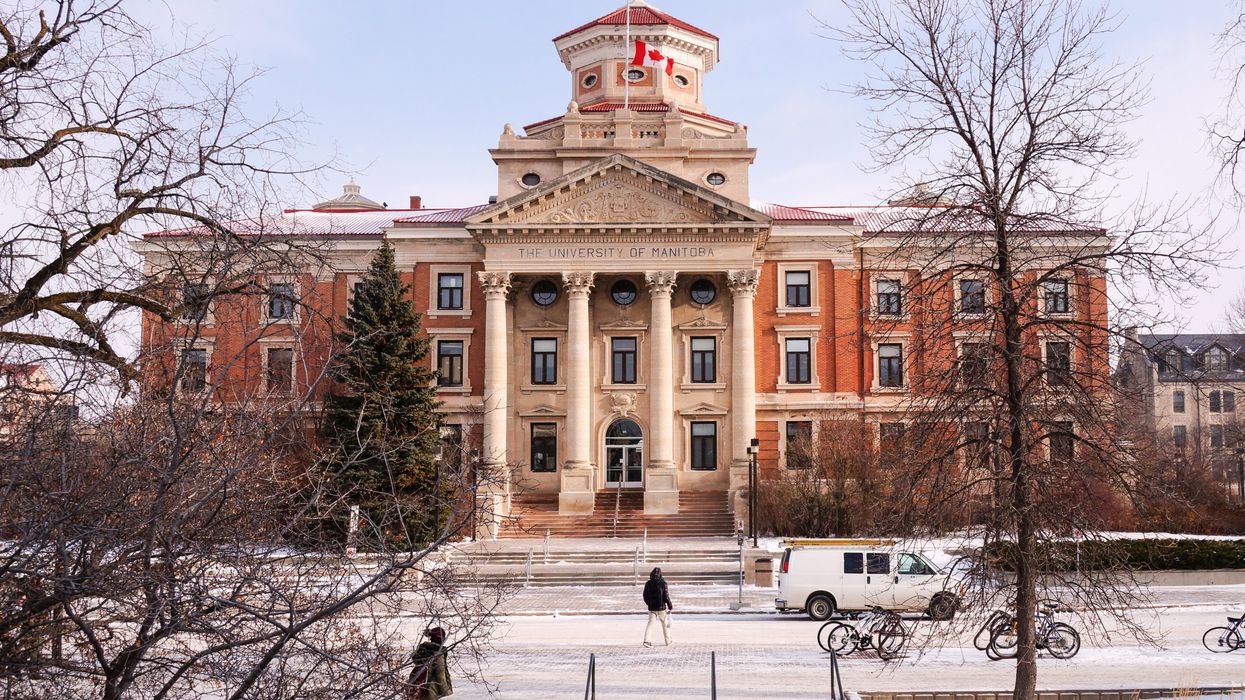Canada is slashing the number of international student permits — Here's what that means
Hundreds of thousands of students will no longer be able to come to Canada to study.

The University of Manitoba administration building.
The federal government has confirmed that it will be slashing the number of international student permits available in Canada, which means hundreds of thousands of international students will be prevented from coming to Canada to study over the next few years.
On Wednesday, September 18, Immigration Minister Marc Miller announced changes to the country's international student permits as part of a broader plan to reduce the number of temporary residents in Canada from 6.5% of the overall population to 5%.
In 2025 and 2026, the number of new international student permits will be reduced by 10% to 437,000, down from 485,000 in 2024. This follows a 35% reduction from 2023 figures, initially announced as a temporary measure earlier this year.
This means by 2025, as many as 45% fewer permits will be approved compared to 2023 levels.
The immigration minister said these changes will result in approximately 300,000 fewer study permits being granted over the next three years, which is bad news for international students hoping to study in Canada.
The exact figures per province will be based on population, Miller confirmed, saying that “some provinces will see much more significant reductions."
"The reality is that not everyone who wants to come to Canada will be able to—just like not everyone who wants to stay in Canada will be able to," he said.
Tweeting about the changes this week, Prime Minister Justin Trudeau said, "We're granting 35% fewer international student permits this year. And next year, that number's going down by another 10%."
He added, "Immigration is an advantage for our economy — but when bad actors abuse the system and take advantage of students, we crack down."
The changes come after the government announced a temporary two-year cap on international student permits earlier this year, which reduced new student visas by 35%. This followed scrutiny of the government's international student program, with critics arguing that Canada's large population of international students is putting pressure on the country's housing market.
Miller said these temporary changes had been effective, prompting more permanent action to curb the number of international students in Canada. Earlier this year, he'd described the number of international students in Canada as "out of control," per CTV News.
At the same time, officials also announced new restrictions on open work permits for spouses of international students. Now, only those whose spouses are pursuing a master's program of at least 16 months are eligible.
What's more, restrictions on the number of temporary foreign workers were also announced, with a 10% employer cap on temporary foreign workers under the Low-wage Stream of the TFW Program applying across Canada (with some exceptions) as of September 26.
Moreover, spouses of foreign workers will only qualify for work permits if the primary worker is employed in management, professional occupations, or sectors facing labour shortages.
"The Temporary Foreign Worker program was designed to address labour market shortages when qualified Canadians were not able to fill those roles. Right now, we know that there are more Canadians qualified to fill open positions," Minister of Employment, Workforce Development and Official Languages, Randy Boissonnault, said on Wednesday.
He added, "The changes we are making today will prioritize Canadians workers and ensures Canadians can trust the program is meeting the needs of our economy."
In response to the announcement, Universities Canada tweeted, "Cuts to international study permits damage Canada's reputation as a premier education destination, impacting institutions nationwide."
The government's expanded plan for immigration levels between 2025 and 2027 will be disclosed in November.
This article's cover image was used for illustrative purposes only.